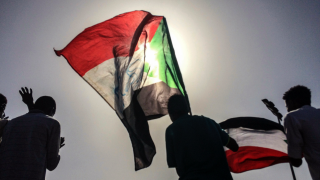Brief military unrest in the Sudanese capital of Khartoum on Tuesday, January 13, has raised concern over the stability in the country’s military and threatens the country’s newly earned revolution. The unrest was caused by members of the National Intelligence and Security Service (NISS), loyalists to former President Omar al-Bashir.
Sudan’s new transitional government had asked members of the NISS to either join the Sudanese army or be dismissed and the men were not pleased. They further rejected financial compensation stating it was inadequate.
According to VOA, the dismissed men had demanded the sum of $30 million as a post-dismissal bonus. The government failed to provide this and the men reacted by blocking off streets in Khartoum and firing bullets in the air.
The incident has led to the death of three people with several more wounded. The country’s airport and airspace were initially shut down, but yesterday, Lieutenant General Abdel Fattah al-Burhan, the head of Sudan’s sovereign council, said they’ve been reopened.
Al Jazeera reports that the situation was contained after more than a 15-hour-standoff between the NISS and the Sudanese armed forces. The NISS itself said the rebellious members of its forces have been convinced to hand over their weapons through negotiations. Abu Bakr Mustafa head of the NISS is said to have handed in his resignation as well for failing to collect weapons from dismissed members of the Intelligence Service.
Lieutenant General Al-Burhan has warned that the Sudanese armed forces will confront any attempt to destabilize security and stability and every attempt to abort Sudan’s new-found revolution. “We will not allow any coup against the legitimacy of the revolution,” he said.
Political analysts have said that the events of Tuesday spell trouble for the country’s new government, especially as the sovereign council has been not been able to unify the various security forces or successfully dismiss them.
Sudan has several security forces; the NISS, the RSF and the Sudanese armed forces. Each force carries different loyalties, hence the rebellion is inevitable. Tuesday’s event happens to be the biggest confrontation so far between Bashir’s loyalists and the new administration.
During a press conference on Tuesday in Juba, South Sudan, Lieutenant-General Mohammed Hamdan Dagalo, leader of the RSF, accused Salah Abdallah Gosh, former head of the Intelligence Sevice, of organizing the rebellion. “This is a coordinated plan by Salah Gosh and another member of the National Congress Party including some generals from intelligence service,” he said.








